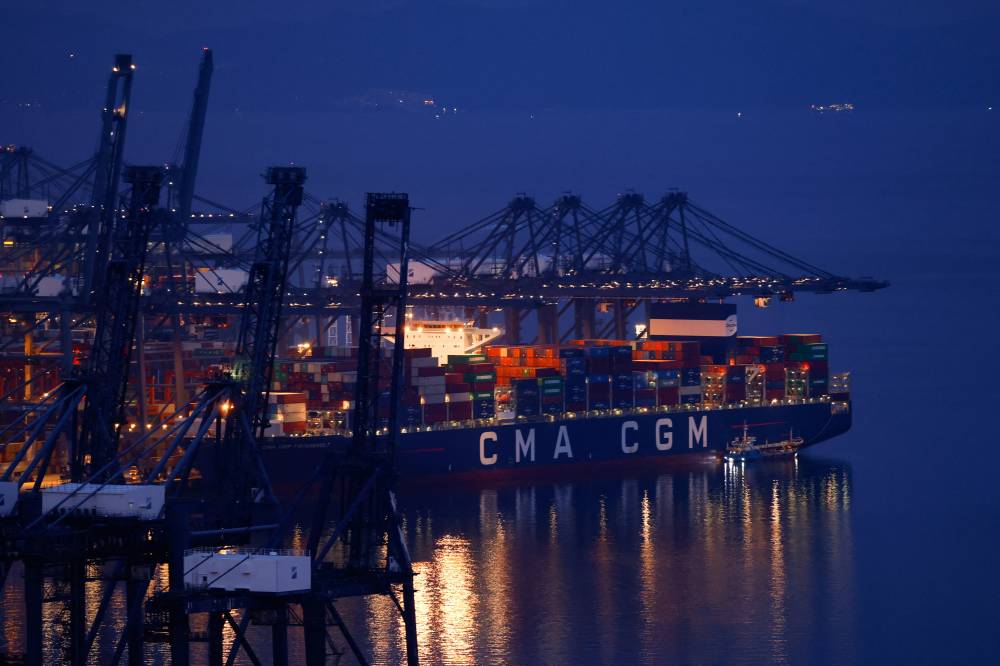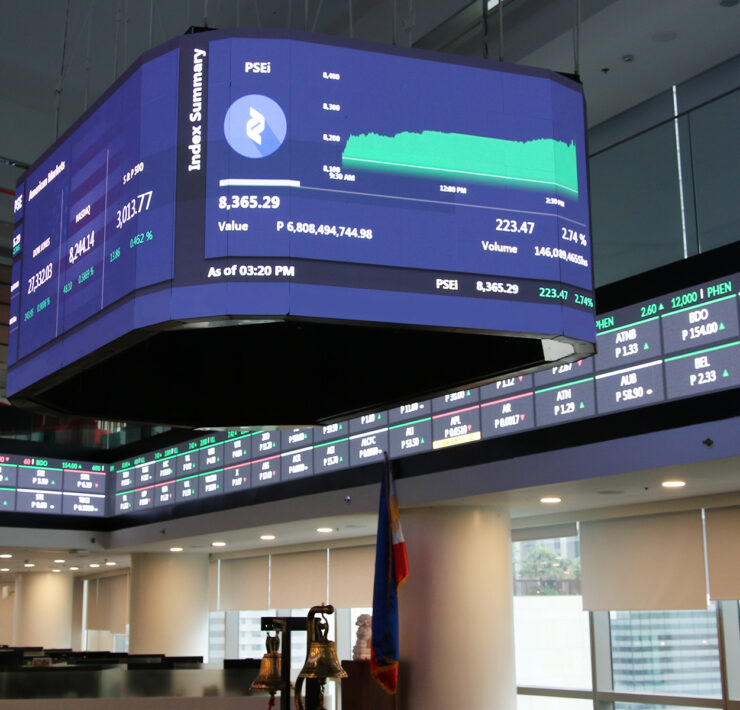Container shipping firms cull Asia-US service as Trump tariffs collapse trade

LOS ANGELES—Major container shipping companies are suspending at least six scheduled weekly routes between China and the United States as President Donald Trump’s punishing tariffs on the world’s top exporting country collapse trade, maritime consultants said.
The ships on those routes have the combined capacity to deliver 25,682 40-foot containers stuffed with toys, tennis shoes, car parts and things US manufacturers use to produce goods each week. That’s more than 1.3 million 40-foot containers a year, based on capacity data provided in customer advisories.
The service cuts, coupled with cancellations of individual voyages, come as hulking container ship operators move to mitigate fallout from Trump’s erratic trade policies.
Policy makers, economists and business owners have become increasingly hungry for information on ocean trade, responsible for 80 percent of the world’s commerce, because it is a gauge of global economic health.
“This is not the precursor, it is the proof of a drop in economic activity,” Simon Sundboell, CEO of Danish maritime data provider eeSea, said of the container vessel capacity reductions now underway.
Sundboell said the route suspensions include scheduled weekly services operated by MSC, Zim and the Ocean Alliance that includes Cosco, Evergreen, CMA-CGM and Orient Overseas Container Line (OOCL).
Four of the service cuts affect West Coast ports, one impacts the East Coast and one hits the Gulf Coast, he said.
The container shipping companies culling those services either declined to comment or did not immediately respond.
Maersk and Hapag-Lloyd’s Gemini Alliance have not suspended services — even though both partners experienced significant tariff-related China to US booking cuts in April and have swapped out some ships for smaller vessels.
Representatives from the US and China are meeting this weekend in Switzerland after more than two months of stalemate over trade.
Blankety blank
Global shipping companies use service suspensions and cancellations of individual voyages, known as blank sailings, to shelter profits by ensuring they do not have more ships on the water than are needed by customers.
That reduces unnecessary overhead costs and keeps supply and demand in balance, supporting competing off-contract spot rates.
Blank sailings increased significantly after the COVID pandemic upended global trade in 2020. These are part of why global container ship operators have been enjoying record profits.
Major US retailers like Amazon.com and Walmart , which account for nearly half of global container trade, responded to Trump’s 145-percent tariffs on China last month by pausing or cancelling factory orders. Those import duties more than doubled the cost of goods made in China.
Canceled, or blanked, individual voyages on the vital Transpacific route from Asia to North America surged from 9 percent in the week ended March 30 to 24 percent in the week ended May 4. This is according to maritime consultancy Drewry, which said so in a podcast earlier this week.
Drewry’s data shows blank sailings reduced capacity on the Asia to West Coast North America routes by 20 percent in April and 12 percent so far in May.
The cuts hit slightly harder on the North American East Coast, reducing 22 percent in April and 18 percent thus far in May, the consultancy said.
MSC, the world’s largest container ship operator, in April canceled 30 percent of its scheduled Transpacific voyages — more than any other container carrier, said Daniela Ghimp, project manager for ocean freight rate benchmarking at Drewry.
The Premier Alliance — composed of Ocean Network Express (ONE), Hyundai Merchant Marine (HMM) and Yang Ming Marine Transportation — leads so far in May with a 20 percent blank sailing rate, Ghimp said.
ONE declined comment, while HMM and Yang Ming did not immediately respond.
The full effect of Trump’s tariffs will likely be delayed until July, when overall US container import volume could be down 25 percent or more from the year earlier, said John McCown, senior fellow at the Center for Maritime Strategy.
“Something’s gotta give, and I believe either considerably more capacity will have to be culled, or spot rates will start to crash,” said Alan Murphy, CEO of supply chain adviser Sea-Intelligence.
Reuters, the news and media division of Thomson Reuters, is the world’s largest multimedia news provider, reaching billions of people worldwide every day. Reuters provides business, financial, national and international news to professionals via desktop terminals, the world's media organizations, industry events and directly to consumers.





















